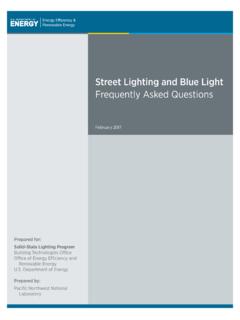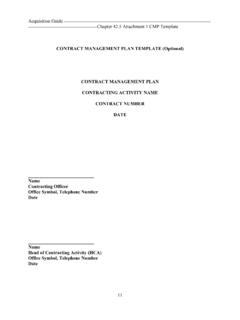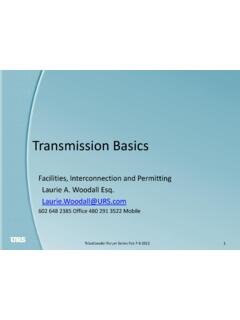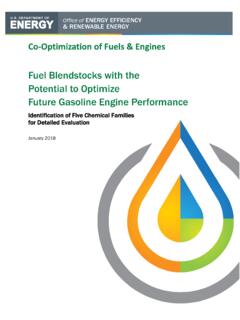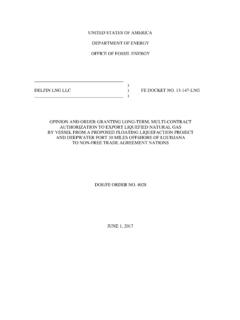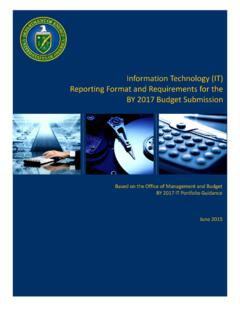Transcription of Homeowner's Guide to the Federal Tax Credit for Solar ...
1 homeowner s Guide to the Federal Tax Credit for Solar PhotovoltaicsDisclaimer: This Guide provides an overview of the Federal investment tax Credit for those interested in residential Solar photovoltaics, or PV. It does not constitute professional tax advice or other professional financial guidance. And it should not be used as the only source of information when making purchasing decisions, investment decisions, or tax decisions, or when executing other binding is a tax Credit ?A tax Credit is a dollar-for-dollar reduction in the amount of income tax you would otherwise owe. For example, claiming a $1,000 Federal tax Credit reduces your Federal income taxes due by $1, is the Federal Solar tax Credit ?
2 The Federal residential Solar energy Credit is a tax Credit that can be claimed on Federal income taxes for a percentage of the cost of a Solar photovoltaic (PV) (Other types of renewable energy are also eligible for similar credits but are beyond the scope of this guidance.) The system must be placed in service during the tax year and generate electricity for a home located in the United States. There is no bright-line test from the IRS on what constitutes placed in service, but the IRS has equated it with completed In December 2020, Congress passed an extension of the ITC, which provides a 26% tax Credit for systems installed in 2020-2022, and 22% for systems installed in The tax Credit expires starting in 2024 unless Congress renews it.
3 There is no maximum amount that can be I eligible to claim the Federal Solar tax Credit ?You might be eligible for this tax Credit if you meet all of the following criteria: Your Solar PV system was installed between January 1, 2006, and December 31, 2023. The Solar PV system is located at your primary or secondary residence in the United States, or for an off-site community Solar project, if the electricity generated is credited against, and does not exceed, your home s electricity You own the Solar PV system ( , you purchased it with cash or through financing but you are neither leasing nor are in an arrangement to purchase electricity generated by a system you do not own).
4 The Solar PV system is new or being used for the first time. The Credit can only be claimed on the original installation of the Solar expenses are included?The following expenses are included: Solar PV panels or PV cells used to power an attic fan (but not the fan itself) Contractor labor costs for onsite preparation, assembly, or original installation, including permitting fees, inspection costs, and developer fees Balance-of-system equipment, including wiring, inverters, and mounting equipmentPhoto Credit Dennis Schroeder, NRELThe Department of Energy Solar Energy Technologies Office supports early-stage research and development to improve the affordability, reliability, and performance of Solar technologies on the grid.
5 The office invests in innovative research efforts that securely integrate more Solar energy into the grid, enhance the use and storage of Solar energy, and lower Solar electricity costs. Energy storage devices that are charged exclusively by the associated Solar PV panels, even if the storage is placed in service in a subsequent tax year to when the Solar energy system is installed (however, the energy storage devices are still subject to the installation date requirements)6 Sales taxes on eligible do other incentives I receive affect the Federal tax Credit ?For current information on incentives, including incentive-specific contact information, visit the Database of State Incentives for Renewables and Efficiency website at from My Electric Utility to Install SolarUnder most circumstances, subsidies provided by your utility to you to install a Solar PV system are excluded from income taxes through an exemption in Federal When this is the case, the utility rebate for installing Solar is subtracted from your system costs before you calculate your tax Credit .
6 For example, if your Solar PV system was installed before December 31, 2022, cost $18,000, and your utility gave you a one-time rebate of $1,000 for installing the system, your tax Credit would be calculated as * ($18,000 - $1,000) = $4,420 Payment for Renewable Energy CertificatesWhen your utility, or other buyer, gives you cash or an incentive in exchange for renewable energy certificates or other environmental attributes of the electricity generated (either upfront or over time), the payment likely will be considered taxable If that is the case, the payment will increase your gross income, but it will not reduce the Federal Solar tax from My State GovernmentUnlike utility rebates, rebates from state governments generally do not reduce your Federal tax Credit .
7 For example, if your Solar PV system was installed before December 31, 2022, installation costs totaled $18,000, and your state government gave you a one-time rebate of $1,000 for installing the system, your Federal tax Credit would be calculated as * $18,000 = $4,680 State Tax CreditState tax credits for installing Solar PV generally do not reduce Federal tax credits and vice versa. However, when you receive a state tax Credit , the taxable income you report on your Federal taxes will be higher than it otherwise would have been because you now have less state income tax to The end result of claiming a state tax Credit is that the amount of the state tax Credit is effectively taxed at the Federal tax example, the net percentage reduction for a homeowner in New York who claims both the 25% state tax credit10 and the 26% Federal tax Credit for an $18,000 system is calculated as follows, assuming a Federal income tax rate of 22% + (1 ) * ( )
8 = Note that because reducing state income taxes increases Federal income taxes paid, the two tax credits are not additive ( , not 25% + 26% = 51%). For an $18,000 system, the total cost reduction in this example would be:[$18,000 * ] + [$18,000 * (1 ) * ( )] = $4,680 + $3,510 = $8,190 Can I claim the Credit , assuming I meet all requirements, if ..I am not a homeowner ?Yes. You do not necessarily have to be a homeowner to claim the tax Credit . A tenant-stockholder at a cooperative housing corporation and members of condominiums are still eligible for the tax Credit if they contribute to the costs of an eligible Solar PV system. In this case, the amount you spend contributing to the cost of the Solar PV system would be the amount you would use to calculate your tax Credit .
9 However, you cannot claim a tax Credit if you are a renter and your landlord installs a Solar system, since you must be an owner of the system to claim the tax installed Solar PV on my vacation home in the United States?Yes. Solar PV systems do not necessarily have to be installed on your primary Solar PV system on a home in the Ozark Mountains. Photo Credit Douglas for you to claim the tax Credit . However, the residential Federal Solar tax Credit cannot be claimed when you put a Solar PV system on a rental unit you own, though it may be eligible for the business ITC under IRC Section am not connected to the electric grid?Yes. A Solar PV system does not necessarily have to be connected to the electric grid for you to claim the residential Federal Solar tax Credit , as long as it is generating electricity for use at your Solar PV panels are on my property but not on my roof?
10 Yes. The Solar PV panels located on your property do not necessarily have to be installed on your roof, as long as they generate electricity for use at your have a home office (or my residence is also used for a commercial purpose)?Yes, but if the residence where you install a Solar PV system serves multiple purposes ( , you have a home office or your business is located in the same building), claiming the tax Credit can be more complicated. When the amount spent on the Solar PV system is mostly used for residential rather than business purposes, the residential Credit may be claimed in full without added complications. However, if less than 80% of the Solar PV system cost is a residential expense, only the percentage that is residential spending can be used to calculate the Federal Solar tax Credit for the individual s tax return; the portion that is a business expense could be eligible for a similar commercial ITC on the business s tax.


